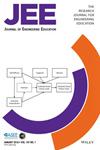Exploring how personal and program characteristics inform the experiences of engineering students abroad
Abstract
Background
As more universities seek to offer international experiences for engineering students, it is important to design such programs to effectively support student learning abroad. Previous research on study abroad has focused on a limited number of outcomes and therefore failed to consider the diversity of experiences students may have in the same program and the range of learning outcomes they may develop while abroad.
Purpose
We explored student experiences across multiple types of engineering study abroad programs to address the research question: How do the types of significant experiences students highlighted from their time abroad differ based on student and/or program characteristics?
Method
We interviewed 79 engineering students after completing their study abroad programs using the critical incident technique to identify significant experiences from their time abroad. We used multiple rounds of coding to characterize the critical incidents identified by students and then compared the frequency of our main themes across student and program characteristics.
Results
We found that student experiences differed across both personal and program characteristics, in particular students' prior travel experiences, program duration, and the destination's cultural distance from the United States.
Conclusions
Our findings can inform the design of global engineering programs, which should consider the impact of program characteristics on student experiences and employ a variety of pedagogies to accommodate differences in students' needs and prior experiences. We also argue that it is important to consider students' experiences more holistically in research and evaluation of global engineering programs.


 求助内容:
求助内容: 应助结果提醒方式:
应助结果提醒方式:


